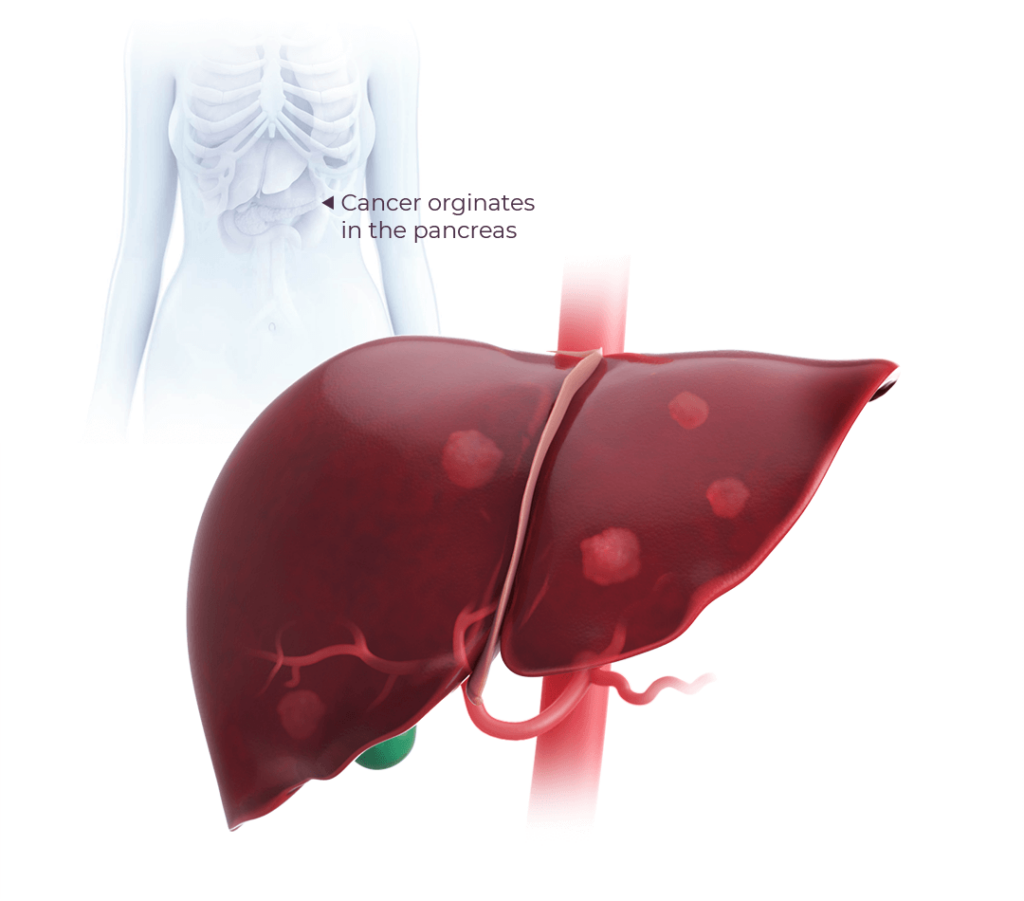
PDAC is the most common tumor arising in the pancreas, accounting for about 85-90% of cases.1 Diagnosis often occurs late, and more than half of patients with pancreatic cancer will have liver metastases at the time of diagnosis.2 Pancreatic liver metastases are associated with poor prognosis, with the median survival time reported to be less than 6 months.3
TriSalus’ PDAC with liver metastases clinical program will initially evaluate our investigational TLR9 agonist, nelitolimod (also known as SD-101), delivered deep into the vasculature of the liver tumors using our proprietary, FDA cleared device. Traditionally, TLR9 agonists like nelitolimod are not administered intravenously but by direct injection into superficial tumors, making treatment of liver metastases very difficult.
TriSalus’ approach will study the delivery of nelitolimod directly into the arteries supplying the liver in order to distribute the drug to PDAC liver metastases within the organ, irrespective of size, number and location of tumors. Infusion by the TriSalus device using the Pressure-Enabled Drug Delivery™(PEDD™) method improves targeted delivery of therapy into high-pressure tumors using a standard intraarterial procedure.
Because immune cells are suppressed throughout the liver and micro-metastases or undetectable additional tumors may be present, tissue that appears normal is also treated with nelitolimod. Importantly, the nelitolimod treatment is being given in combination with a systemic (or intravenous) immunotherapy to enable treatment of tumors within the liver as well as tumors that may be present in other parts of the body.
Nelitolimod is in clinical development and has not been approved in the US or globally.
We are studying the combination of nelitolimod with PEDD to enable immunotherapies in the liver and pancreas. Our clinical research is focused on bringing this potentially transformative treatment platform to patients.
1. Kim SS, et al. J Belg Soc Radiol. 2018; 102(1):71.
2. Ouyang H, et al. Pancreas. 2011;40(1):120-125.
3. Jemal A, et al. CA Cancer J Clin. 2008;58(2):71-96.
We encourage you to read and evaluate terms of use, privacy, security and other similar policies of the destination site as they may differ from TriSalus’ standards.
TriSalus assumes no responsibility nor does it control, endorse or guarantee any aspect of your use of any third party sites. Additionally, the presence of this link does not imply the third party site’s endorsement of TriSalus or this website.
Thank you for visiting our site.